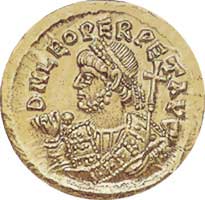DURING THE CONQUEST OF CANAAN, GENERAL JOSHUA ADDED AN EXTRA DAY TO THE CALENDAR, THEREBY MAKING THE 7TH DAY THE FIRST DAY OF THE WEEK. JOSHUA THE MESSIAH SANCTIFIED THAT DAY BY RISING FROM THE DEAD ON THAT FIRST OF THE SABBATHS (JOSHUA 10:12-14). |
The Hebrew day began at sundown and lasted until the next sundown. The Messiah rose from the dead sometime after sundown at the time that is now called Saturday evening!
The word WEEK is never used in the Greek New Covenant because the Romans had a 8-day week while the Hebrews had a 7 day week. The day of the Resurrection is called the First of the Sabbaths to distinguish it from the 7th day Hebrew Sabbath.
There are 52 holy days or holidays in Christianity called Sabbaths:
If you refrain from trampling the Sabbath underfoot, from doing thy pleasure on my holy day; and call the Sabbath a delight, the holy of JEHOVAH, honourable; and shalt honour him, not doing thine own ways, nor finding thine own pleasure, nor speaking thine own words: Then shalt thou delight thyself in JEHOVAH; and I will cause thee to ride upon the high places of the earth, and feed thee with the heritage of Jacob thy father: for the mouth of JEHOVAH hath spoken it (Isaiah 58:13-14).
In true Christianity, there are 365 HOLY DAYS in a year because all our days belong to JEHOVAH....However, JEHOVAH commands us to keep 52 days exclusively for his worship, and we are to WORK on all the other days.
Whenever they could, early Christians kept 52 days exclusively, and also 8 days at the great full moon Passover/Resurrection season, making 60 holy days in the year when work was forbidden. Slaves who became Christians could not refuse to work on the Sabbath until the Sabbath was legalized by Emperor Leo in 469 AD.
The 7-day week, with the weekly Sabbath, was given by JEHOVAH to Moses on Mount Sinai, circa 1500 BC. This timely revolution coincided with the giving of the Old Covenant to Israel. The Sabbath was to be strictly observed, with the death penalty attached to violations, such as working, traveling, or even lighting a fire on that day.
The
7-day week as given by JEHOVAH to Moses on Mount Sinai |
||||||
Sabbath
Day |
First
day of the Sabbath |
Second
day of the Sabbath |
Third
day of the Sabbath. |
Fourth day of the Sabbath |
Fifth day of the Sabbath |
Sixth
day of the Sabbath. |
This calendar remained in effect for Israel until JEHOVAH of Nazareth instituted the New Covenant calendar by His Resurrection from the dead:
The
new calendar instituted by JEHOVAH of NAZARETH with the First day of the Sabbath as Resurrection Day! |
||||||
First day of the Sabbath |
Second
day of the Sabbath |
Third
day of the Sabbath |
Fourth
day of the Sabbath |
Fifth
day of the Sabbath |
Sixth day of the Sabbath. |
Seventh
day of the Sabbath |
As Christianity became catholic and universal, it clashed with the pagan 8-day week of the Roman Empire. For astrology and divination, the names of the week were named for the 7 visible heavenly bodies: Sun, Moon, Mars, Mercury, Jupiter, Venus, Saturn, and the 8th day was a market day:
The
pagan Roman 8-day week calendar |
|||||||
Dies
solis |
Dies
Lunae |
Dies
Martis |
Dies Mercurii | Dies
Iovis |
Dies
Veneris |
Dies
Saturni |
Nundinae (market day) |
The new 7-day week as decreed by Constantine. The only major change was the elimination of the 8th market day. Constantine still permitted certain kinds of work on the new Christian Sabbath, which he referred to as Dies solis:
The
7-day week instituted by Emperor Jesus ,Constantine for the Roman Empire |
||||||
Dies
solis |
Dies
Lunae |
Dies
Martis |
Dies
Mercurii |
Dies
Iovis |
Dies
Veneris |
Dies
Saturni |
Jesus Constantine did no favors for the Christians except to change the pagan 8-day week to the Christian 7-day week. Later on, more enlightened Emperors forbade work on the Resurrection Sabbath.
Before the Resurrection of Joshua of Nazareth, the Sabbath began in the evening. After the Resurrection, the Sabbath began at sunrise or dawn!!
The word WEEK, as is found in all modern day Bible translations, originally came from the corrupt Latin Vulgate Version:
In the end of the sabbath, as it began to dawn toward the first day of the week, came Mary Magdalene and the other Mary to see the sepulchre (Matthew 28:1, Douay-Rheims Version).
This verse would be very plain to a Jew, but the Romans had an 8-day week, and the Greeks had a 10-day week, so the chronology would make no sense at all to a non-Jew.
Here is what the verse says in Greek, written by a Jew named Matthew:
In the end of the sabbaths (Gk. Sabbaton), as it began to dawn toward the first of the sabbaths (Gk. Sabbaton), came Miriam of Magdala and the other Miriam to see the sepulchre (Matthew 28:1).
Passover/Resurrection week had 2 Sabbaths: The Passover Sabbath (5th day), and the regular weekly Sabbath fell on the 7th day of the Jewish week.
What this verse is also teaching is that the old Jewish Sabbaths, with the severe restrictions on travel, lighting fires in the home etc., etc., were ended forever.
The Christians immediately adopted this 1st Day Sabbath because of the Resurrection:
And on the first of the sabbaths, Miriam of Magdala doth come early (there being yet darkness) to the tomb, and she seeth the stone having been taken away out of the tomb (Luke 24:1).
It being, therefore, evening, on that day, the first of the sabbaths, and the doors having been shut where the disciples were assembled, through fear of the Jews, Joshua came and stood in the midst, and saith to them, "peace be unto you" (John 20:19).
And upon the first of the sabbaths (Gk. Sabbaton), when the disciples came together to break bread, Paul preached unto them, ready to depart on the morrow; and continued his speech until midnight (Acts 20:7).
Upon the first of the sabbaths (Gk. Sabbaton) let every one of you lay by him in store, as God hath prospered him, that there be no gatherings when I come (I Corinthians 16:2).
This ending of the old Jewish Sabbaths was a marvelous fulfillment of the prophecy of Hosea made about 700 years previously:
I will also cause all her mirth to cease, her feast days, her new moons, and her sabbaths, and all her solemn feasts (Hosea 2:11).
The ancient race of Jews, or physical descendants of Father Abraham, disappeared from history forever, to be replaced by the spiritual sons of Abraham who believe in the Risen Messiah—JEHOVAH of Nazareth.
The Christian Sabbath begins at SUNDOWN
In the Hebrew Bible the day began at sundown:
And ELOHIM called the light Day, and the darkness he called night. And the evening and the morning were the first day (Genesis 1:5).
It shall be unto you a sabbath of rest, and ye shall afflict your souls: in the ninth day of the month at evening, from evening unto evening, shall ye celebrate your sabbath (Leviticus 23:32).
When Mary Magdalene reached the tomb early in the morning on the first of the Sabbaths, the Messiah had already risen from the dead. The fact of his Resurrection was discovered early in the morning . . . but he had already risen prior to that time!
Emperor Jesus Constantine made the 7-day week mandatory for the Roman Empire!
False teachers like the 7th Day Adventists claim that Emperor Constantine changed the Sabbath from Saturday to the first day of the week. A little knowledge of history can easily dispel that myth.
The ancient world was familiar with the concept of a 7 day week, with one day of rest each week, because Jews were found in most countries of the Roman Empire:
For Moses of old time hath in every city them that preach him, being read in the synagogues every sabbath day (Acts 15:21).
No other nations adopted that blessed custom because paganism was controlled by Satan and he never gave his slaves any rest. The ancient Egyptians and Greeks had a 10- day week, while the Romans had an 8-day week, with the 8th day being a market day. The Romans never ceased working on their market day which was called nundinae.
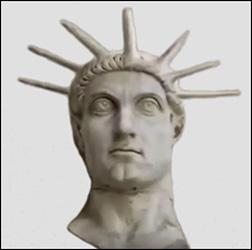
Emperor Jesus Constantine.
Misruled from 306 to 337 |
|
Icon of Emperor Jesus Constantine presiding over the council of Nicaea. |
Emperor Constantine changed the TIME and PLACE of the Resurrection. The theory that Constantine also changed the Sabbath is pure nonsense. According to the great Christian historian Eusebius, Constantine did issue an edict forbidding work on that day throughout the Empire. Here is a copy of that edict:
He (Constantine) ordained, too, that one day should be regarded as a special occasion for prayer: I mean that which is truly the first and chief of all, the day of our Lord and Saviour. The entire care of his household was entrusted to deacons and other ministers consecrated to the service of God, and distinguished by gravity of life and every other virtue: while his trusty bodyguard, strong in affection and fidelity to his person, found in their emperor an instructor in the practice of piety, and like him held the Lord's salutary day in honor, and performed on that day the devotions which he loved. The same observance was recommended by this blessed prince to all classes of his subjects: his earnest desire being gradually to lead all mankind to the worship of God. Accordingly he enjoined on all the subjects of the Roman empire to observe the Lord's day, as a day of rest, and also to honor the day which precedes the Sabbath; in memory, I suppose, of what the Saviour of mankind is recorded to have achieved on that day. And since his desire was to teach his whole army zealously to honor the Saviour's day (which derives its name from light, and from the sun), he freely granted to those among them who were partakers of the divine faith, leisure for attendance on the services of the Church of God, in order that they might be able, without impediment, to perform their religious worship. (Eusebius, Life of Constantine, pp. 544-555).
That edict never made it into the Roman law code. According to the Theodosian Code, all Constantine did was close the courts on the day that he called Dies Solis. Here is a copy of that edict:
Emperor Constantine Augustus to Helpidius.
Just as it appears to Us most unseemly that the Day of the Sun (Dies Solis), which is celebrated on account of its own veneration, should be occupied with legal altercations and with noxious controversies of the litigation of contending parties, so it is pleasant and fitting that those acts which are especially desired shall be accomplished on that day. Therefore all men shall have the right to emancipate and to manumit on this festive day, and the legal formalities thereof are not forbidden.
Posted on the fifth day before the nones of July at Cagliari in the year of the second consulship of Crispus and Constantine Caesars. -July 3, 321.INTERPRETATION : Although We had ordered that on the holy Day of the Lord all litigation and suits must cease, nevertheless We by no means prohibit emancipation and manumission, and by corresponding regulation We permit the legal formalities thereof to be performed. (Theodosian Code, Book II, Holidays).
Constantine and his advisers noticed that the Christian Sabbath corresponded with the Roman Dies Solis or Day of the Sun so they used that to merge Christianity with Roman paganism.
Emperor Leo I legislated the first Christian Sabbath law!!
Constantine has been called the first "Christian" Emperor....Nothing could be further from the truth....Emperor Leo I was the first truly Christian Roman Emperor.
In 469, the Emperor passed a law commanding all to cease work on the Christian Sabbath. Catholic Christians needed no law to tell them to observe the Sabbath. Wherever they preached the Gospel, they introduced the 7-day week with the Sabbath Day for Christian worship.
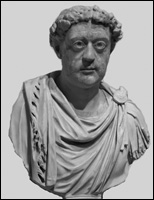 Emperor Leo I (401–474). Emperor from 457 to 474. |
|
|
Leo's coronation as Emperor on February 7, 457, was the first known to involve the Patriarch of Constantinople. In 469, Leo issued an edict concerning the Christian Sabbath or the Lord's Day. Here is Constitution LIV (54) from the Constitutions of Emperor Leo:
A law was in force among the disciples of these distinguished men which directed that every kind of labor shall be suspended on the day of the Resurrection. There is, however, another which contradicts this, and provides that all persons shall not be prevented from working upon that day, but that some should be indulged in this respect; for it declares that judges, the inhabitants of cities, and all artisans should rest on this venerated day, but that persons residing in the country can freely engage in the cultivation of their fields, which exception is not founded upon reason. For although, in this instance, the pretext that the crops must be saved can be alleged, this excuse is of no weight, and indeed is futile, as when God gave Us the fruits of the earth he intended that they should be preserved by the effect of the sun, to which, rather than to the industry of the cultivators of the soil, is due the abundance of the crops, and should be so attributed; and as the existence of a law of this kind dishonors the worship of the Lord, and is contrary to what was prescribed by those who, with the assistance of the Holy Spirit, obtained a victory over all their adversaries, We hereby decree, in accordance with the wishes of the Holy Spirit, as proclaimed by Jesus Christ and His Apostles, that, during the sacred day when Our redemption is celebrated, everyone shall desist from labor, and neither farmers nor anyone else shall be allowed to perform any unlawful work. For if those who observed only the shadow and semblance of the laws had so much respect for the Sabbath as to strictly abstain from every kind of labor, how can those who are enlightened by divine grace, and cultivate the truth, fail to exhibit the same reverence for the one day out of seven which has been consecrated to the glory of God, and on which he has honored Us, and delivered Us from death? And when one day of the seven has been dedicated to Our Lord, does it not evince contempt for religion to refuse to be satisfied with working during the other days and not preserve this one sacred and inviolate for God, nor make a distinction between it and the others by using it for the same purpose? (Constitution LIV).
This was the official adaptation of the 7 day week with the Sabbath as a day of rest....Notice that this enlightened legislation came from New Roma . . . and not from the bishop of Old Roma, newly enthroned in the former seat of the Caesars.
Emperor Justinian compiled a list of all the Roman laws going back to the founding of Roma and the Constitutions of Leo were included in the enactments.
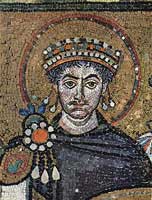 Emperor Justinian (483–565). Emperor from 527 to 565. |
|
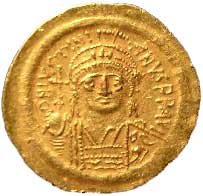 Coin of Emperor Justinian. |
Here is a quote from the book The Canon Law of the Papal Throne:
The greatest legacy of the Roman Empire to the modern world is the Civil Law. As triumphant legions carried the frontiers of that Empire to the ends of the world, the legal establishments of more ancient peoples found their place in the administration of the vast fabric and were wrought by jurists and emperors into the imperishable Roman Law.
After thirteen centuries of development that law was assembled and digested by eminent jurists and teachers under authority of the Emperor Justinian in the sixth century and wrought into the compilation now so widely known as the Corpus Juris Civilis–Body of the Civil Law. No other volume except the Bible has so deeply affected modern Europe and the New World. (Nations, The Canon Law of the Papal Throne).
Many of the enactments of the Justinian Code are totally contrary to the Bible but the Constitutions of Leo are a rare exception.
Joshua moved all the days ONE DAY forward!!
When general Joshua was conquering the Promised Land, he commanded the sun and moon to stand still for ONE WHOLE DAY in order to give him more time to defeat his enemies. This is the greatest instance of divine intervention in the Old Covenant, and one of the most maligned miracles in the entire Bible, as Joshua is accused of ignorance of the movement of the earth:
Then spoke Joshua to JEHOVAH in the day when JEHOVAH delivered up the Amorites before the children of Israel, and he said in the sight of Israel, Sun, stand thou still upon Gibeon; and thou, Moon, in the valley of Ajalon.
And the sun stood still, and the moon stayed, until the people had avenged themselves upon their enemies. Is not this written in the book of Jasher? So the sun stood still in the midst of heaven, and hasted not to go down about a whole day.
And there was no day like that before it or after it, that JEHOVAH hearkened unto the voice of a man: for JEHOVAH fought for Israel (Joshua 10:12-14).
Obviously, anybody measuring time with a water clock, or any other means other than a sundial, would have noticed that a whole 24 hours had passed and the sun had not set, thereby moving the days one day forward.
JEHOVAH did not have to make the sun stand still inorder to defeat the Canaanites who opposed Joshua.... He performed that miracle in order to prefigure another Joshua who would change the day by a still greater miracle, namely His Resurrection from the dead!!
Vital links
All the verses in English that say WEEK instead of SABBATH
All the verses in German that correctly translate the word SABBATH
The Greek New Covenant narrated on MPG files
A Modern English Translation of the Greek Septuagint
Biblegateway.com.....over 50 Bible versions online.
References
Bevis, Charlie. Sunday Baseball. The Major Leagues' Struggle to Play Baseball on the Lord's Day, 1876-1934. McFarland & Co., Inc., North Carolina & London, 2003.
Brenton, Sir Lancelot C. L. The Septuagint with Apocrypha: Greek & English. Hendrickson Publishers, Peabody, MA, 1986. (Originally published in 1851).
Canright, Rev. D. M. The Lord's Day. From Neither Catholics nor Pagans. Fleming H. Revell Company, New York, 1915.
Cox, Robert, The Literature of the Sabbath Question. (in 2 volumes), MacLachlan & Stewart, Edinburgh, 1865.
Dawood, N.J. The Koran with Parallel Arabic Text. Penguin Classics , New York & London, 1990.
Eusebius Pamphili, (260-340).Preparation for the Gospel, Proof of the Gospel, Ecclesiastical History, Life of Constantine, Oration to Constantine, etc., etc. Grand Rapids, Baker Book House, 1981.
Gamble, Samuel Walter. Sunday, The True Sabbath of God. Jennings & Pye Publishers, New York, 1900.
Manual of "Christian" Doctrine, comprising Dogma, Moral, and Worship by A Seminary Professor. John Joseph, McVey, Philadelphia, PA, 1920. (Imprimatur N. F. Fisher, Censor Librorum, Arthur J. Scanlan, Censor Deputatus, D. J. Dougherty, Archbishop of Philadelphia).
Pharr, Clyde. The Theodosian Code and Novels and the Sirmondian Constitutions, Princeton University Press, 1952. Reprinted by the Lawbook Exchange, Clark, New Jersey. 2001.
Rule, William Harris, D.D. The Holy Sabbath. Instituted in Paradise, and Perfected Through Christ. S.W. Partridge & Co., London, 1870.
Scott, S.P.The Civil Code (in 17 volumes). The Central Trust Company, Cincinnati, 1932.
Solberg, Winton U. Redeem the Time: The Puritan Sabbath in Early America. Harvard University Press, Cambridge, MASS., 1977.
Zerubavel, Eviatar.The Seven Day Circle: The History & Meaning of the Week. The Free Press, Collier Macmillian Publishers, New York, 1985.
Copyright © 2016 by Patrick Scrivener
